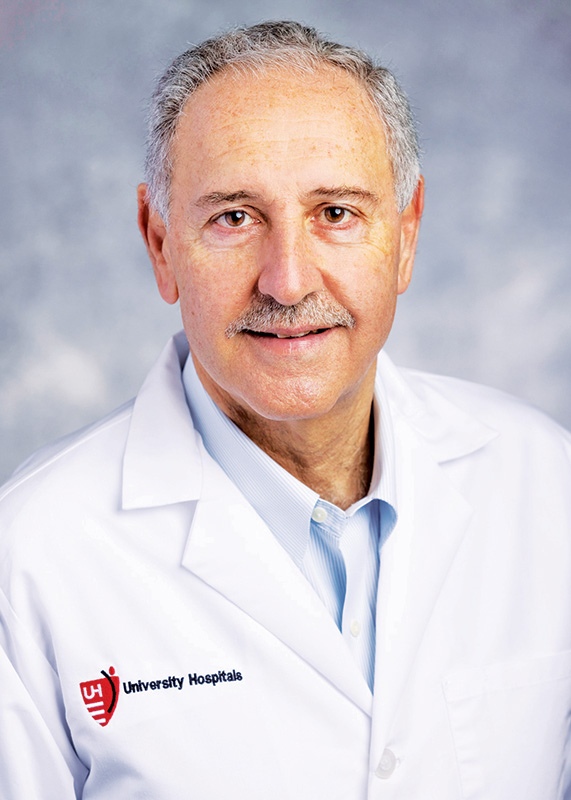This is how the team at University Hospitals Geauga Medical Center, a Campus of UH Regional Hospitals, is helping patients find real relief

By Laura Briedis
Pain is real, but so is hope.
For those suffering with chronic pain, University Hospitals Geauga Medical Center, a Campus of UH Regional Hospitals, is helping patients find relief.
“Chronic pain is defined as long-lasting pain that persists beyond the usual three- to six-month recovery period or occurs along with a chronic health condition, such as diabetes or arthritis,” says Dr. Ghassan Kanazi, a UH pain specialist and professor of anesthesiology at Case Western Reserve University School of Medicine.
Whether a senior with back pain, a teenager recovering from a sports injury, an office worker suffering from repetitive stress injury, a patient with diabetic pain or someone with persistent postsurgical pain, University Hospitals Pain Management Services can treat and help patients manage.
Non-opioid medication treatments and interventional therapies, such as physical therapy and integrative therapies, are increasingly being recommended as frontline resources for patients.
“In the 1990s, the pendulum in pain management shifted to aggressively treat pain using opioids,” Dr. Kanazi says. “But the literature has shown the treatment of chronic pain is better achieved through other therapies, along with better medications, such as neuromodulators that decrease sensitivity in certain nerves and antidepressants that reduce pain signals.”
“I always caution patients to be careful with opioid medications because it is a slippery slope,” he says. “I recommend patients take opioid medications for severe pain. Instead of relying on medication, we are doing more interventions like epidural steroid injections, targeted nerve blocks and electrical stimulation.”
Oftentimes pain management physicians also will refer patients to physical therapy to recondition and strengthen core muscles.
“I stress to patients not to be inactive, sitting, waiting for the pain to go away, because the more inactive you are the worse the pain,” Dr. Kanazi says.
University Hospitals’ multidisciplinary initiative includes top-rated pain management doctors from anesthesiology, behavioral health, emergency medicine, pediatrics, primary care, surgery and UH Connor Whole Health—all working together to help lessen pain.
“My goal is to decrease pain so my patients can be able to function better,” Dr. Kanazi says. “I teach patients how to adapt since the pain may not entirely go away, but they can deal with it with the right tools. Sometimes there is no magic bullet, but there are things we can do so they can enjoy activities without significant discomfort.”

A caring and friendly physician, Dr. Kanazi joined UH Geauga Medical Center this spring with 30 years of experience. He received his medical degree from the American University of Beirut and did a residency in anesthesiology at the Cleveland Clinic and a fellowship at the Mayo Clinic. He returned to Cleveland in 2021, working at University Hospitals Cleveland Medical Center and Westlake pain clinic. He now sees patients at UH Geauga Medical Center as well.
When assessing patients, he looks for important indicators, such as the location of pain to determine whether it is localized or radiating, and other characteristics like if it is a throbbing pain or shooting pain.
“The assessment helps determine if it is somatic or neuropathic pain,” Dr. Kanazi says. “And you have to consider other modalities when dealing with pain, because pain is not always physical but also can be psychological.”
Chronic pain can also cause fatigue, anxiety and depression, so he says it is important that patients learn to manage their pain instead of letting the pain manage them.
“I reassure my patients that I am here to help them and do everything I can to make them feel better,” says Dr. Kanazi. “It’s a unique relationship between pain management doctors and their patients, as there will be ups and downs, but we will not abandon them.”
Comprehensive Pain Management is located at 12475 Hospital Drive, in Chardon, on UH Geauga Medical Center campus. For more information, call 440-901-1614 or visit UHhospitals.org/Geauga.
